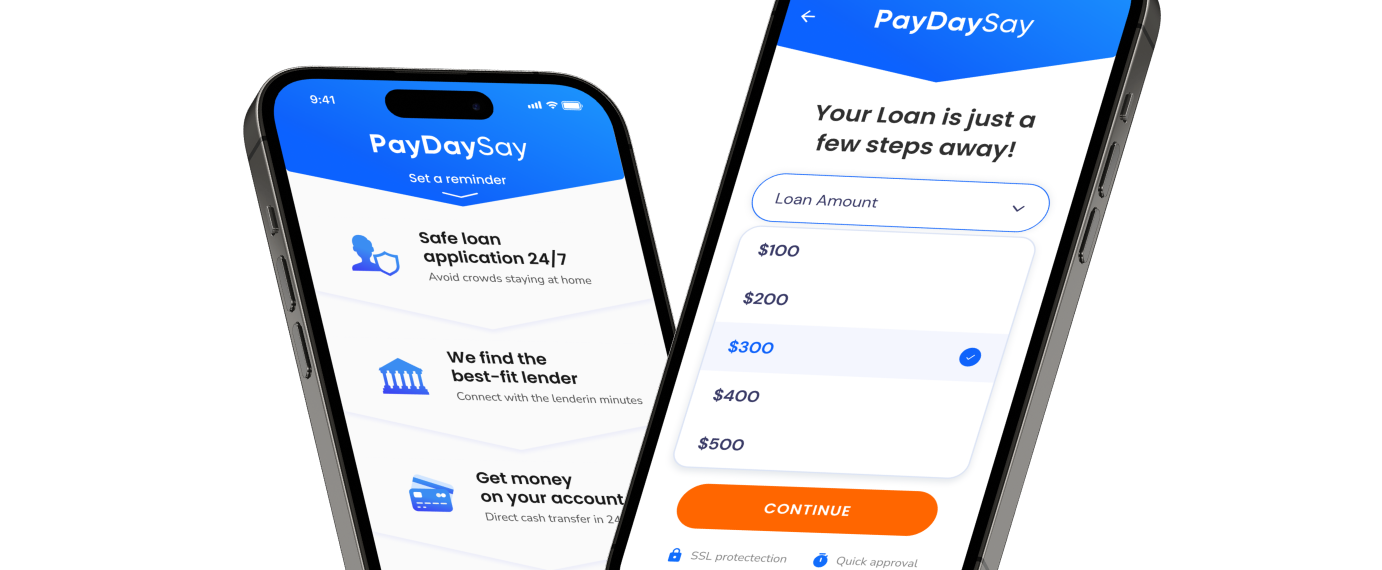To rebuild credit fast, you must get and pay off several loans on time. For example, you can get a credit card, a car loan, a borrow money app, or a small personal loan so lenders can see your credit history and ensure you are a reliable borrower.
Many Americans use such loans to improve their credit scores, but it’s essential to understand that this is not the best option for everyone. Will it work for you? Do personal loans build credit, and what should you consider before signing a contract with a lender? Let’s discuss the answers to these questions in this article.
How Personal Loan Works
Most loans in the world are personal loans, as banks give them to borrowers for private purposes (such as paying for travel or paying off wedding expenses). Usually, it is an amount between $1,000 and $100,000 that a customer can get for 1 to 10 years at an APR of up to 36%.
It is crucial to remember that such loans have fixed monthly payments. They can be secured (those that require collateral) and unsecured. It can be challenging to get an unsecured personal loan if you have no credit history at all. But you can always go to a bank and borrow money against your property (your house or car) for a lower APR.
Positive Effects of Personal Loans on The Credit
To understand the personal loans’ effect on your credit score, you should know how it is calculated. The main factor is your payment history, which accounts for 35% of your final score. In addition, such loans help improve your FICO or VantageScore because of the fixed payments the lender will report to the credit bureau.
Another positive consequence of using this option is the variety of credits. Credit mix, meaning having varying types of credit, is responsible for 10% of your final FICO or VantageScore.
It is important to note that almost all lenders report to the credit bureaus, which is very important for building a credit history. In addition, it is one of the most understandable types of borrowing, as you can calculate all payments in advance and plan for their timely repayment. This way, you won’t fall into a debt trap and can improve your credit score quickly.
Negative Effects of Personal Loans on The Credit
Personal loans themselves do not hurt your credit history. However, you should remember that you are still borrowing money from the financial institution, so if you don’t pay it back on time, you could be in trouble.
For example, such loans can negatively affect your credit score because of the following factors:
- Banks and other financial institutions often make hard inquiries before they lend you money. This way, they determine if you are a reliable borrower, but this method takes an average of 10-15 FICO points off your score.
- Even one late payment can ruin your credit history. In addition, it will show up on your credit report and could have a negative impact for the next seven years.
- Such loans can be costly, especially if you don’t have a credit history. Those lenders who do not do hard credit checks usually have the highest APRs.
- Almost all personal loan lenders charge additional fees, such as origination fees of up to 10%.
And, of course, you must remember that the financial institution where you will borrow funds must report to all three credit bureaus. Unfortunately, many online lenders willing to work with borrowers with bad credit scores do not.
How to Use a Personal Loan to Build Credit
There are several ways to use personal credit to make the best possible impact on your credit score:
- Get a debt consolidation loan.
If you need to rebuild damaged credit history, this may be your best option. You’ll get one big loan at a low interest rate to pay off all the ones you already have and lower your credit utilization rate. Then, your FICO or VantageScore will be better in just a few months of on-time payments.
- Get a credit-builder loan.
The safest way to rebuild credit fast is to have no access to credit and avoid debt. A credit-builder loan works on precisely this principle.
With it, you have to make payments for a specific time. Then, when you pay off the loan in full, along with interest, you will receive the borrowed funds and can spend them as you see fit.
This type of credit is unconventional and unusual, it is not suitable for buying new things and is more of a financial tool than a type of borrowing, but it is a great way to create a credit history and not pay the high APR that awaits anyone with low FICO or VantageScores.
- Get a regular personal loan with the lowest APR possible if you need it.
It would be a mistake to take out such a loan just to create a credit history. However, it makes sense if you want to buy a new phone or get a loan for any other purpose and are willing to pay it back on time.
Useful Tips For Using Personal Loans to Build Credit
If you decide to use such a loan to create a positive credit history quickly, you need to choose the right lender and follow the recommendations of financial experts. We’ve compiled them below and explained why each is important, so you don’t forget when choosing a financial institution.
Compare Rates And Fees Carefully
You should not choose to take out a loan with the company you saw first. When comparing financial institutions, borrowers often find that they could have saved hundreds of dollars a year if they had spent 1-2 hours looking for the best offer.
The monthly payment amount, fees, or APRs you pay to the lender does not affect your credit history. The credit bureaus only care that you pay all your debts on time. So please don’t take out a large loan with a high APR in the expectation that it will help you rebuild your credit quickly.
Instead, spend a few hours looking for an offer with the lowest APR and interest rates you are comfortable with. Be sure to compare only the same terms (the exact amounts for the same period) to understand which offer is more favorable.
Borrow If You Need
Many Americans make the big mistake of wanting to build credit quickly – they borrow money when they don’t need it. As a result, months later or in an emergency, they can’t get a new loan at a low APR because their credit utilization is already very high or because their income won’t allow them to pay off two loans at once.
If you don’t need a personal loan, don’t take one, so you don’t end up in debt. You can instead turn to companies that provide credit-builder loans to build your credit history gradually and confidently for a small fee.
Understand What Monthly Payment You Can Afford
Remember that you still have to pay back your loan funds on time, even if the purpose of your loan is to build your credit history. So be sure to calculate how much of a monthly payment is comfortable for your budget, and make sure you have a financial cushion in case you lose your job before the loan is fully repaid.
Each payment missed by more than 30 days will result in a late penalty and a negative mark on your credit report. One such mark can take away an average of about 100 FICO points, which can be very difficult to earn.
Read The Fine Print
In addition to the interest that all borrowers know about, it’s essential to keep in mind the additional fees and penalties. Unfortunately, lenders are usually reluctant to talk about them out loud, so you must ensure you understand all the requirements and terms of the loan before you sign the contract.
Also, while reading the fine print and agreement, focus on the loan repayment period, the exact APR, fees, and the monthly payment amount. Read how many days the grace period is, whether the lender reports to the credit bureaus, and what happens if you do not make a monthly payment on the specified date.
Don’t Forget to Pay
Many borrowers miss a monthly payment not because they don’t have the money but because they forget about it. Unfortunately, the credit bureaus will not consider the circumstances of your missed payment, they will simply put a negative note about it on your report, and you will have to rebuild your credit history again.
As soon as you get a loan, put a reminder on your phone of all due dates, and ask your significant other – your parents or partner – to do so. This way, you won’t forget about your monthly payments and can rebuild credit quickly.
What to Consider Before Using a Personal Loan to Build Credit
As we said above, such loans are not the ideal solution for everyone. Therefore, before you sign a contract with a lender, you need to consider some of the disadvantages of this option. Let’s take a closer look at each of them.
Hard Inquiry on Credit Report
Banks and other financial institutions usually conduct hard credit checks to ensure they deal with a reliable borrower who will pay back the funds on time and decide on the loan terms. Each hard inquiry will show up on your credit fast, take an average of 10-15 points off your score, and stay there for two years.
If your credit report has too many of these hard inquiries in the past couple of months, lenders may think you have a difficult financial situation or some problems and deny you a loan. To prevent this from happening, don’t apply for credit from banks or companies that don’t tell you the approximate terms of the loan before the hard credit check.
Instead, apply to financial institutions that use soft credit checks.
More Debts
Any loan is an additional obligation and a financial burden that can lead to a debt trap. If you are not sure about the stability of your job and understand that you can lose income in the next 1-2 years, it is better not to borrow money from financial institutions.
You can always rebuild your credit history with small credit-building loans or credit cards. Use the alternatives that are safest for you.
Associated Fees
Many lenders charge borrowers up to 10% origination fees and late, prepayment, or other fees. These fees are often a big part of the price of the loan and can cause problems if the borrower does not take them into account when getting the loan funds.
Try to choose lenders with low fees or those who don’t ask to pay them. This way, you reduce the price of the loan and create more financial security for yourself.













 on your homescreen
on your homescreen
